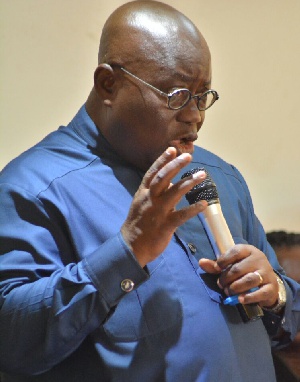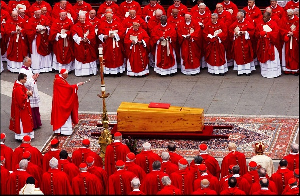We have seen the Council-of-State perform at its worst under lame-duck President John Dramani Mahama, and so I fail to understand what all this fuss about President Addo Dankwa Akufo-Addo’s not having consulted with this veritable rubber-stamp boondoggle of a statutory advisory board is really about.
Indeed, as the erudite Dean of the Ghana Institute of Management and Public Administration succinctly puts it, “How does any law-abiding Ghanaian expect Nana Akufo-Addo to have consulted with the members of the Council-of-State before releasing the names on the list of his cabinet appointees, as well as other highly placed public servants that he intends to form his government with, when the Akufo-Addo Administration has yet to be inaugurated?”
At any rate, isn’t it stretching matters to far for any Ghanaian citizen or critic to expect the President-Elect to start acting like the presidential incumbent, when Mr. John Dramani Mahama still has a couple, or so, days to exhaust himself of his electoral or constitutional mandate? That would really be tantamount to a flagrant breach of the Constitution.
Not only that, it would practically be tantamount to Nana Akufo-Addo’s attempting to overthrow a democratically elected government, such as was done by Chairman Jerry John Rawlings on December 31, 1981, with the putsch that criminally ousted the Limann-led government of the People’s National Party (PNP). And wouldn’t that be ironic, since it is actually the Mahama-led government of the so-called National Democratic Congress (NDC) that has an unenviable history and tradition of usurping power through the barbaric force of arms, rather than the more rational, peaceful and civilized instrumentality of the ballot box?
In recent times, the former Attorney-General and Minister of Justice has taken pains to critically explain the fact that the salient difference between the New Patriotic Party (NPP) and the National Democratic Congress is the provable fact that the operatives of the latter administrative machinery prefer to rule by edict, whereas the NPP prefers legislative consensus.
In the past several months, for example, Ghanaians and the rest of the world looked on aghast as President Mahama capriciously used his veto powers to ride roughshod over the authority and legitimacy of the Wood Supreme Court vis-à-vis the conviction and sentencing of the so-called Montie Three to a three-month prison term apiece.
The patently inexcusable nature of President Mahama’s strategically regressive and morally reprehensible exercise of his veto powers inhered in the fact that the three convicted thugs, who also doubled as NDC media propagandists, had publicly threatened to sexually violate Chief Justice Georgina Theodora Wood and to summarily abduct and cause the Mafia-style execution of any member of the highest court of the land perceived by these Mahama hirelings to be standing in the way of the ruling government’s publicly expressed decision to rig the 2016 general election in its favor.
And this is precisely where the institutional irresponsibility of the Council-of-State, whose members voted unanimously to have President Mahama disdainfully override the verdict of the Supreme Court, comes in. which is why even as I write, the leaders of some Accra-based think-tanks are calling for this purely advisory establishment to be promptly scrapped by the incoming Akufo-Addo Administration.
To these virulent critics of the institutional credibility of the Council-of-State, the latter establishment has absolutely no relevance on two counts. First of all, any advisement, or advisory services, proffered any sitting President by the members of the Council-of-State has no legal binding. And secondly, the institution of the Council-of-State is an unnecessary burden and a drain on the limited financial and capital resources of the country.
Third and final, but not the least among the three reasons, ought to be added the fact that as an elite institution composed of some of the most distinguished citizens of the land, the facile collaborative complicity of the membership of the Council-of-State in such high crimes and misdemeanors, as the summary veto override of the Supreme Court decision in the matter of the Montie Three Affair, sets the sort of dangerous precedent that could easily plunge the nation into civil strife.
For the Council-of-State, as it is presently constituted, offers the Executive arm of the government a deleterious weapon to literally upend the requisite democratic balance of power that ought to studiously regulate the functioning of all three arms of government, namely, the Executive, Legislature and the Judiciary.
Opinions of Monday, 9 January 2017
Columnist: Okoampa-Ahoofe, Kwame















